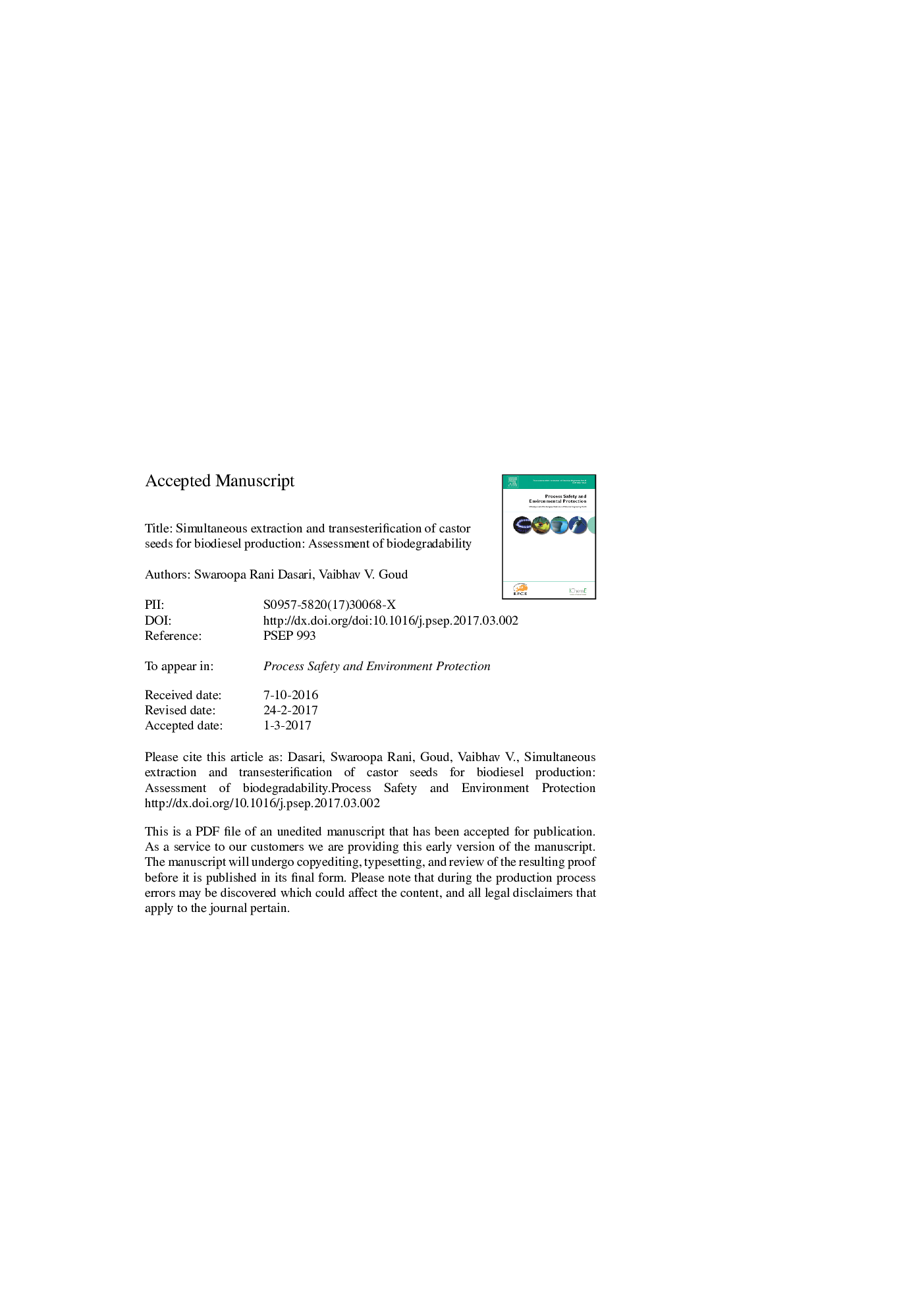| Article ID | Journal | Published Year | Pages | File Type |
|---|---|---|---|---|
| 4980997 | Process Safety and Environmental Protection | 2017 | 44 Pages |
Abstract
The objective of this study was to investigate single step trans-esterification with integration of Soxhlet order to find the effect of various reaction variables on the conversion of castor oil methyl ester (COME) via conventional optimization method. Based on the results obtained from the conventional method, a three-level-three factorial central composite design (CCD) was employed to study the effect of three significant variables on COME conversion. The optimum conditions to maximise the methyl ester conversion inferred from the RSM (Response Surface Methodology) were: reaction time-6.3 h, oil/methanol molar ratio-1:400, catalyst concentration-1.5 wt%, seed weight-20 g, stirring speed-1000 rpm, and temperature-65 °C. At this condition methyl ester conversion could reach as high as 95%. The co-solvent (hexane) showed insignificant effect on methyl esters conversion. The fuel properties of produced COME conform to the ASTM standards. Biodegradability of prepared COME tested using bio-kinetic model was found to be 51% in 28 days. The lower biodegradability attributed to the higher COME viscosity.
Related Topics
Physical Sciences and Engineering
Chemical Engineering
Chemical Health and Safety
Authors
Swaroopa Rani Dasari, Vaibhav V. Goud,
